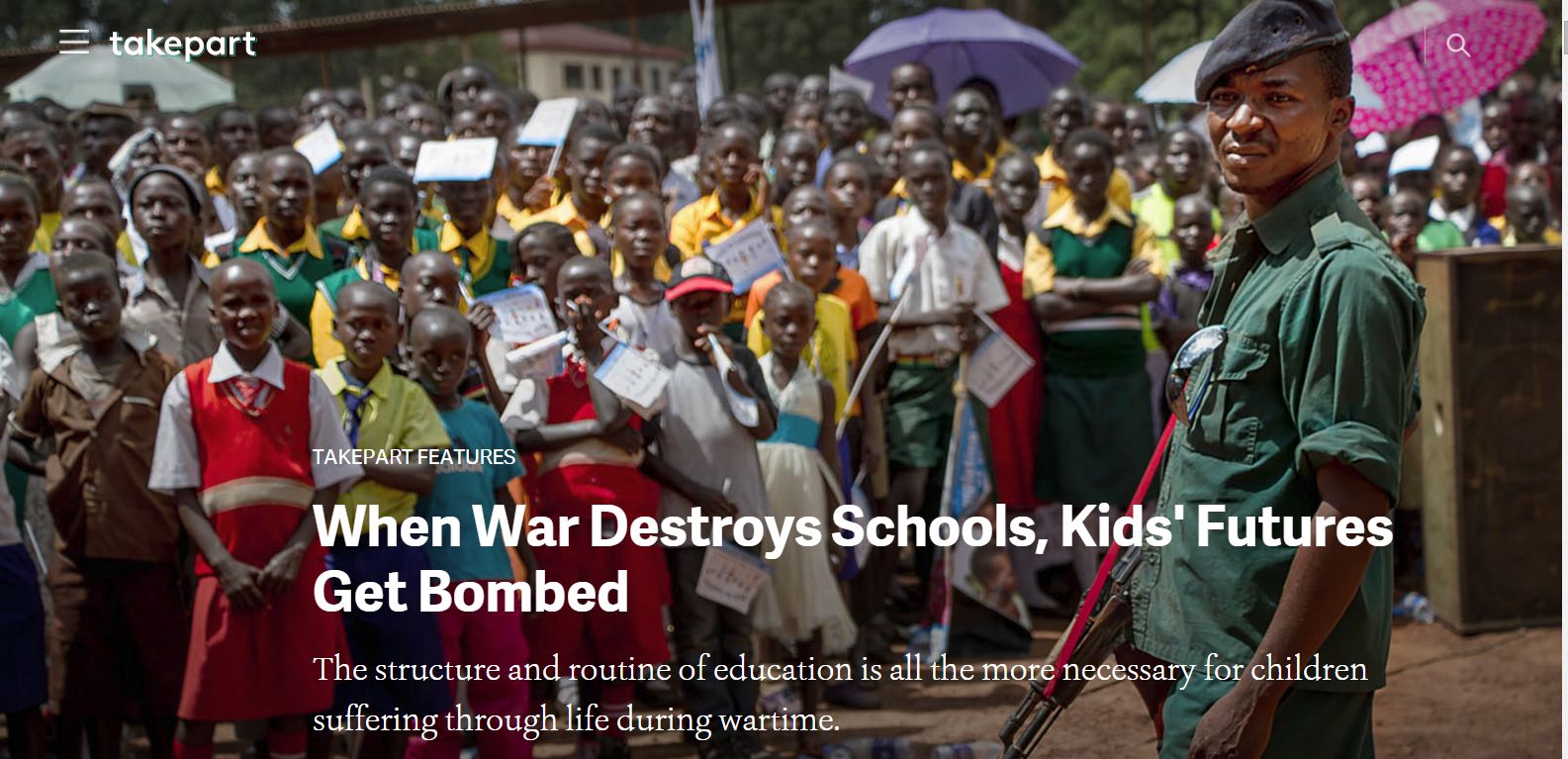Takepart: When War Destroys Schools, Kids' Futures Get Bombed
On topic song at the bottom.
OS

Students and soldiers during a 'back-to-learning' promotion event organized by UNICEF in Yambio, South Sudan, in May 2015. (Photo: Ashley Hamer)
http://www.takepart.com/feature/2016/03/04/south-sudan-civil-war?cmpid=tpfeatures-eml-2016-03-06-sudan
MAR 4, 2016 Amanda Sperber is a journalist based in Nairobi. Her work has appeared in Foreign Policy, The Guardian, VICE, and Al Jazeera.
NYAL, South Sudan—Whether it comes up in conversation or not, Gabriel Mawiyai will be glad to inform you why you have a headache (the blood vessels in your brain are swelling). If he sees a friend smoking, he’ll volunteer what’s happening to his lungs (they’re losing the ability to expand). He reads the back of the aspirin bottle before taking a pill and comments on blood coagulation. He loves this stuff.
This is a 26-year-old who beat the odds: He made it through secondary school. As separatists fought a war of independence against the government of Sudan, Gabriel’s uncle helped him move to Kenya in 2001 so he could continue his studies. When violence broke out there during the 2007 election, he shifted to Uganda. Despite these disruptions to his classwork, there were “very few times someone beat me [on a test],” he says, grinning at the memory. He’s confident in his smarts.
After more than 20 years of fighting, South Sudan won its independence from Sudan in 2011, and Gabriel was able to return home. He wanted to be a doctor. When he was 14, he had seen a woman die of postpartum hemorrhage, the kind of avoidable death that almost never happens in places with adequate medical care. “I was annoyed. People were saying she died because the doctors were not skilled,” he says. After that, Gabriel started reading any science or physics book he could get his hands on. “People who were doing many great things in science, I was following them.”
Gabriel enrolled in medical school at Maridi National Health Training Institute. In four semesters, only once was he bested for first in class. He can manage postpartum hemorrhage now. But when he went to Juba, the capital, for the winter holidays, war broke out again. School closed. It almost didn’t matter: Gabriel needed to work to support his family, whose livelihood was disrupted by the violence.
FULL story at link.

The village of Melut, about 80 miles downriver from Malakal, was largely destroyed by fighting in June 2015. (Photo: Ashley Hamer)

